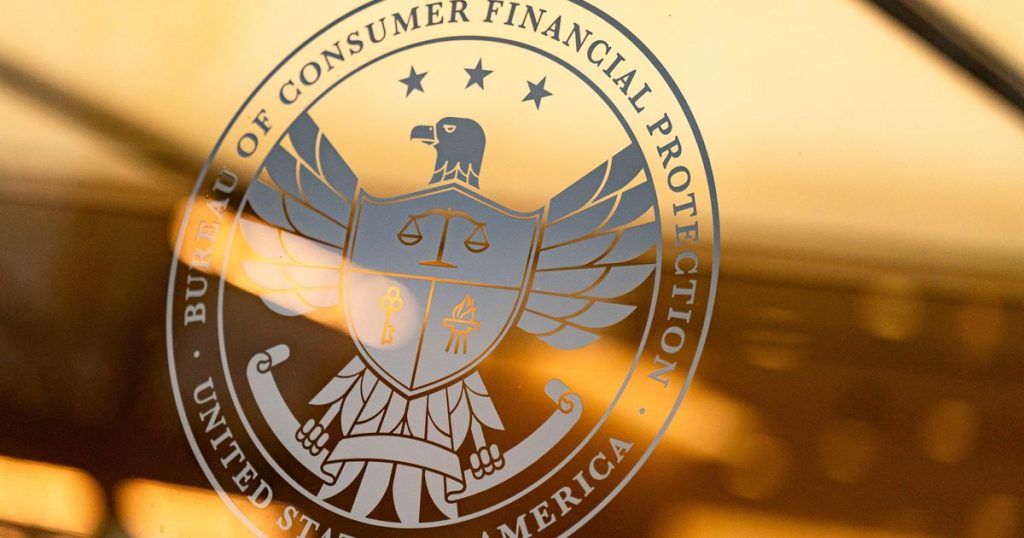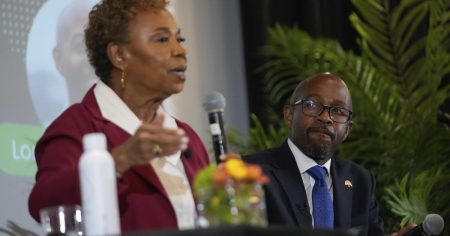In a significant and concerning move, Russell Vought, the newly appointed acting director of the Consumer Financial Protection Bureau (CFPB), has instructed the agency to halt all operations. This directive, sent via email on a Saturday, marks the latest effort by the Trump administration to roll back consumer protections and reduce oversight of corporate giants. Vought, who was confirmed by the Senate to lead the Office of Management and Budget (OMB) just days earlier, was swiftly appointed by President Donald Trump to also serve as the CFPB’s acting director. His email ordered staff to cease all supervision and examination activities, stop issuing regulatory guidance, halt pending investigations, and refrain from opening new ones. Additionally, Vought instructed the agency to no longer make or approve filings or appearances in any litigation, except to request a pause in proceedings. This move effectively paralyzes the CFPB, leaving consumers vulnerable to predatory financial practices.
The CFPB was established in 2011 by Senator Elizabeth Warren (D-Mass.) in response to the regulatory failures that led to the 2008 financial crisis. The agency was designed to protect consumers from unfair and deceptive practices by big banks and corporations, and it has since returned over $21 billion to families harmed by Wall Street. Vought’s action, however, undermines this mission. By halting supervision and investigations, the CFPB can no longer hold financial institutions accountable for wrongdoing. This freeze on operations means that consumers will lose a critical layer of protection, leaving them at the mercy of corporations that may engage in exploitative behavior. Vought justified his decision by stating that he is committed to implementing the president’s policies and acting as a “faithful steward” of the bureau’s resources. However, critics argue that this move is part of a broader effort to dismantle consumer protections and empower corporate interests.
Vought’s directive builds on an earlier order by Treasury Secretary Scott Bessent, who had already instructed CFPB staff to stop performing their core functions. Vought’s decision takes this a step further by explicitly halting supervision, which is a key component of the agency’s role in enforcing financial regulations. The consequences of this freeze are dire. Without oversight, financial institutions are free to engage in predatory practices, such as hidden fees, deceptive lending terms, and other exploitative behaviors, without fear of repercussions. This not only harms individual consumers but also undermines trust in the financial system as a whole. Senator Warren, a staunch defender of the CFPB, has been vocal in her criticism of Vought’s actions. She accused him of giving “big banks and giant corporations the green light to scam families” and highlighted the agency’s track record of recovering billions of dollars for consumers. Warren also noted that Republicans have repeatedly failed in their attempts to gut the CFPB through Congress and the courts, suggesting that this latest effort will similarly fail.
Despite the criticism, Republicans on the Senate Banking Committee have praised Vought’s decision, arguing that accountability at the CFPB is long overdue. They criticized the agency’s previous leadership, particularly former Director Rohit Chopra, for what they described as reckless rule-making and a lack of responsiveness to congressional oversight. The committee expressed support for Vought’s efforts to “bring responsibility back to the CFPB” and refocus its mission on serving the American people. However, these claims ring hollow for many consumer advocates, who see Vought’s actions as a thinly veiled attempt to dismantle the agency altogether. The CFPB has long been a target of Republican ire, particularly over its funding structure, which is independent of the congressional appropriations process. The agency receives its funding directly from the Federal Reserve, which Republicans argue is unconstitutional. However, the Supreme Court ruled last year that the CFPB’s funding mechanism is legal, dealing a significant blow to efforts to defund the agency.
In a stunning move, Vought has now taken this a step further by requesting $0 in funding for the CFPB for the third quarter of Fiscal Year 2025. In a letter to Federal Reserve Chairman Jerome Powell, Vought claimed that the agency’s current balance of $711.6 million is “excessive” and that no additional funds are needed to carry out its duties. This decision effectively starves the agency of the resources it needs to operate, raising questions about its ability to function in the future. Vought has been consistent in his messaging, repeating the same justification on social media and framing his actions as a responsible stewardship of taxpayer dollars. However, critics argue that this is little more than a pretext for dismantling the agency. The CFPB’s independence and ability to operate without political interference have always been central to its mission, and Vought’s actions threaten to erode both.
Vought’s efforts to gut the CFPB are part of a broader conservative agenda outlined in Project 2025, a blueprint for overhauling the federal government that Vought has helped lead. This project aims to shrink the federal government and consolidate power, goals that align with the Trump administration’s vision of a smaller, less regulatory state. As head of the OMB, Vought is well-positioned to advance this agenda, and his appointment as acting director of the CFPB gives him direct control over an agency that has long been a thorn in the side of corporate interests. In a chilling sign of what is to come, officials from Elon Musk’s Department of Government Efficiency (DOGE), a private initiative with no official government status, were granted administrative access to the CFPB’s headquarters and systems just hours after Vought’s appointment. This move has raised eyebrows, as it blurs the lines between public and private power and raises concerns about the influence of billionaires in shaping government policy.
As the situation unfolds, the stakes could not be higher. If the CFPB is effectively dismantled, the consequences for consumers will be profound. Without the agency’s oversight, financial institutions will have far more latitude to engage in exploitative practices, and consumers will lose a critical advocate in their corner. Senator Warren has warned that the disappearance of the CFPB could have far-reaching implications for anyone with a checking account, credit card, mortgage, or student loan. In a recent op-ed, she highlighted the dangers of Project 2025, which she described as a “dangerous promise” to roll back consumer protections and empower corporate interests. Her warnings are echoed by many consumer advocates, who see the CFPB as a vital safeguard against financial abuse. As the agency’s website now displays a “404: Page not found” error, and its social media accounts are no longer active, it is clear that the CFPB is in grave jeopardy. The coming weeks and months will determine whether the agency can survive this latest assault and continue its mission of protecting American consumers.









